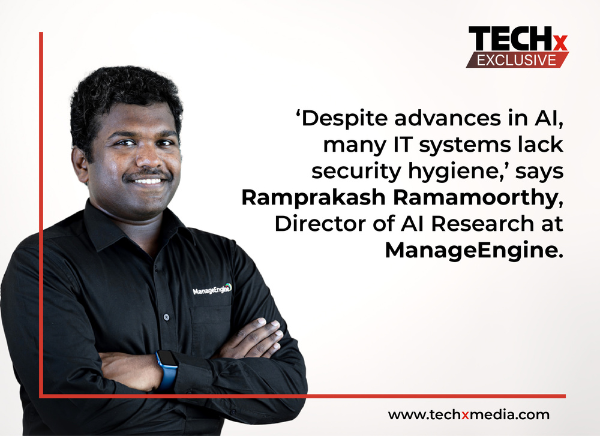

In a recent interview with Ramprakash Ramamoorthy, Director of AI Research at ManageEngine, TECHx Executive Editor Rabab Zehra explored the integration of AI into the journey towards achieving digital maturity.
Ramamoorthy emphasized the significant role AI plays in enhancing digital maturity, particularly in the context of security. With the shift to remote work post-pandemic, IT infrastructure had to adapt to accommodate access to enterprise data from various networks. AI emerged as a crucial component in ensuring the security of these systems, leveraging data-based revenue models to train consumer-oriented AI models. These AI models have evolved to perform tasks such as summarizing content, engaging in conversations, and providing predictive analytics.
Moreover, Ramamoorthy highlighted the importance of data maturity in advancing AI capabilities. He outlined three steps towards achieving digital maturity: streamlining processes, centralizing data, and automation. By leveraging AI to streamline operations and improve resilience, organizations can better manage their IT systems. Centralizing data allows for better insights and contextual intelligence, while automation ensures adaptability in volatile environments.
Regarding the oversight of AI development, especially concerning process maturity and automation, Ramamoorthy stressed the importance of comprehensive visibility into workflows. By monitoring incidents both within and outside standard processes, organizations can address issues proactively. Additionally, he discussed the role of AI-enabled automation in continuously improving processes and responding to cybersecurity threats.
Looking ahead, Ramamoorthy discussed the anticipated trajectory of AI within enterprise IT. He predicted increased automation of business and IT processes, driven by a diverse range of language models catering to different needs. These models will enhance decision-making intelligence within organizations, leveraging both public and proprietary data.
Finally, Ramamoorthy delved into the shortcomings of traditional cybersecurity methods and the critical role AI plays in enhancing enterprise cybersecurity strategies. Traditional methods, he noted, are reactive and lack the adaptability to address evolving threats. In contrast, AI-driven cybersecurity measures operate on dynamic thresholds, allowing for proactive threat detection and automated response protocols.
Overall, Ramprakash Ramamoorthy’s insights underscored the transformative potential of AI in advancing digital maturity and strengthening cybersecurity strategies within enterprises.
